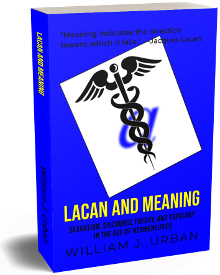Freedom qua Spontaneity:
The Lacanian Subject in the Critique of Pure Reason
WILLIAM J. URBAN
Second Paralogism of Simplicity
That thing whose action can never be regarded as the concurrence of many acting things, is simple. Now the soul, or the thinking I, is such a thing. Thus etc. [A351]
As noted above, Kant views rational psychology as a flawed systematic extension of a misreading of the Cartesian cogito. Thus, his overall critique of the Paralogisms can be read as a much needed corrective to our modern inheritance of the Cartesian project. However, the Second Paralogism seems to be an exception in regards to this Cartesian background, for it does have identifiable Leibnizian roots. (Allison 1983: 367n.22) Nevertheless, much of the logic developed above can be equally applied to this (and the Third) syllogism. We will highlight a few points of interest.
Kant refers to this syllogism as the ‘Achilles of all the dialectical inferences of the pure doctrine of the soul... that seems to withstand even the sharpest testing and the greatest scruples of inquiry.’ [A351] As Allison surmises, this is because the argument underlying the inference has a close (ultimately superficial) affinity to Kant’s own account of the TUA and thus this syllogism has a superior power to deceive. (Allison 2004: 341–2) The underlying argument is based on a reductio ad absurdum of the assumption that the thing which thinks is composite; since this is rejected as impossible on the grounds that the unity required for thought cannot be conceived as a product of collective action of distinct beings, the soul must be simple. As in the First Paralogism, the focus is on the equivocation of the minor premise, where the rational psychologist conflates the unity of consciousness required as a logical condition of thought with a supposed real or metaphysical unity (simplicity) of the thing which thinks. Further, this conflation is based on an illusory hypostatization, under the direction of P2, of the simplicity of the representation of the subject of thought with the simplicity of a real subject. (Allison 2004: 343)
Lacanian-themed puzzles

